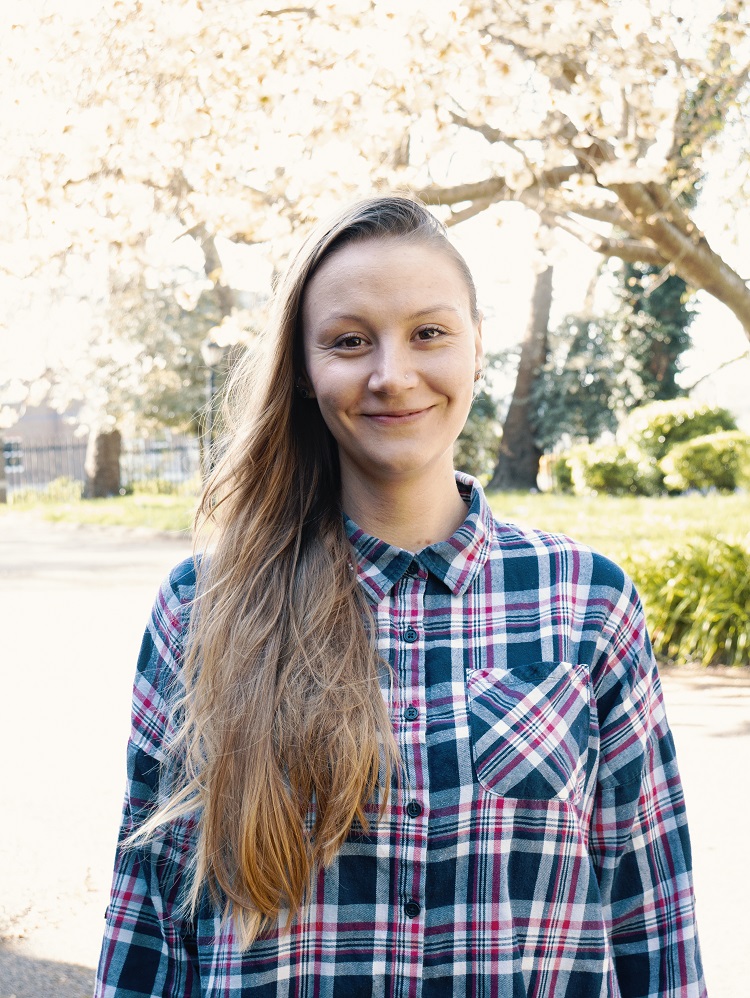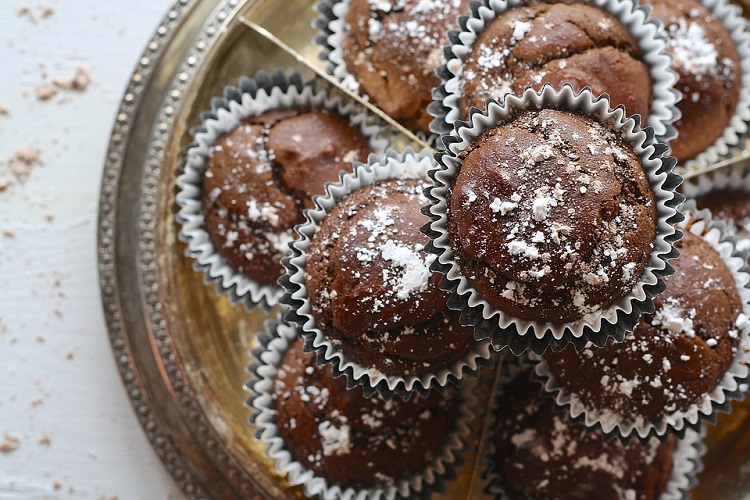At the beginning of March 2020, Manuela Carnaghi was elected President of NRIPS – the Natural Resources Institute Postgraduate Society – and she was brimming with ideas. But what she hadn’t bargained on, was the entire country entering lockdown, and the Medway campus closing its doors for the foreseeable future. Manuela takes up the story.
Being elected as president of NRIPS was great, but the timing was so unfortunate; I wasn’t expecting to have to deal with all the things that followed due to Covid-19. Normally the role of the president is somewhat informal – everyone has their own way of managing NRIPS, and I had a few ideas of what I wanted to achieve and improvements I could make, but the lockdown took us all by surprise.
The purpose of NRIPS, which has existed since February 2015, is to enrich the academic, social and intellectual interests of its members - it’s run by postgraduate students for postgraduate students. The society would normally meet  regularly for a range of activities and the opportunity to discuss issues of relevance to the NRI postgraduate student community, such as publishing academic papers, qualitative research methods and post-PhD career options.
regularly for a range of activities and the opportunity to discuss issues of relevance to the NRI postgraduate student community, such as publishing academic papers, qualitative research methods and post-PhD career options.
I had to quickly rethink the role and reorganise a lot of things on my to-do list. I’d originally wanted to restart social events and try to blend the relationships between PhD students and staff at NRI, as sometimes I feel there is a gap. I had planned to organise picnics, ‘pot-luck’ meals where everyone brings a dish to share, and ‘cake Fridays’ to bring everyone together to have a chat and do some networking, which is crucial for the students as it can open up opportunities, give new insight into projects, bring new perspectives and encourage collaboration.
Also, from a purely social point of view, it’s good to get to know as many people as possible, as we’re all part of NRI. We would usually hold a summer picnic – at last year’s we played field games which were really entertaining and a very bonding experience and one I hoped to repeat, but that’s clearly not going to happen. Our Christmas party is always really good fun too so we’re keeping our fingers crossed for that!
My very first response to lockdown was to organise a Skype meeting with the members to discuss our main concerns and fears – both from work and personal perspectives. We had students who had to care for vulnerable relatives and family, and this had a huge impact on their work. Even if the labs and university could have reopened, they were naturally very worried about how to shield effectively. After our meeting, we wrote a formal letter to NRI’s Director, Professor Andrew Westby, outlining our concerns and expressing our needs.
Andrew’s response was quick and supportive, and we’ve since scheduled-in one meeting per week with Andrew, Professor Ben Bennett, NRI’s Deputy Director, and Dr John Orchard, the Director of Postgraduate Research Studies, to discuss the latest developments. During our weekly call, we talk about what is happening at University level and NRI level, and it’s been very valuable to have that regular opportunity to talk.
The mood of the students has ranged from sadness, to frustration and of course real concern. Some of us were supposed to be doing fieldwork abroad collecting vital data for our PhDs but it was all cancelled. The mental health of the students is something we’ve had to be aware of too and it’s an issue that NRI and the University are taking seriously.
As we’ve recently begun a return to lab work, I was kept very busy having meetings with Simon Springate, the lab manager, John Orchard and the other PhD students. We had to work out who really needed access to the labs and for how long, and what rooms and equipment they would need, so we could help devise a workable rota. We’re a few weeks in now and everyone has managed it really well, adhering strictly to safety and social distancing rules. It’s been a great team effort. The needs of the students were taken seriously, and most of the students who requested access, were given it.
 Despite all the setbacks that 2020 has thrown at us, I am enjoying my role as President of NRIPS. It’s a very responsible position and it does take up quite a lot of time. I have to really make sure that I still apply myself to my own PhD project, but I’m very happy and proud to be in this role.
Despite all the setbacks that 2020 has thrown at us, I am enjoying my role as President of NRIPS. It’s a very responsible position and it does take up quite a lot of time. I have to really make sure that I still apply myself to my own PhD project, but I’m very happy and proud to be in this role.
I really want to make a difference, so I’ve also managed to organize a series of training sessions that are specific for PhD students to cover topics that are important for postgraduate students, such as academic publication, post PhD career options, etc. Every fortnight, the sessions are given by speakers – staff, former students, etc. – that have valuable experience in the topic of the session. We’ve had five so far and they’ve been really successful.
I’ve worked together with the NRI IT team and the Communications team to update the NRIPS pages on the NRI website and we are now working towards having the PhD students’ profiles on the NRI website.
I’m also the chair of the annual NRIPS symposium, an opportunity for us to come together to present our PhD work to NRI and University staff and students. I’m hoping we will be allowed to go ahead with this – to actually get together in the same room – otherwise it will have to happen online which will take me right out of my comfort zone as I, like lots of others, need constant help with all the virtual tech!
Although it takes a lot of time to organise these things, it’s very rewarding. Another thing that I’ve tried to do is to reach out to all the new students that joined NRI during the lockdown. I wanted to make sure that they were properly introduced within NRIPS and that they knew that we were here for them if needed.
I have created an online platform where PhD students can share useful information – documents, instructions, forms, etc. – to promote communication within our community. I’ve also increased the frequency of NRIPS members’ virtual meetings as it’s good to see people on screen even if we can’t meet in the flesh. I hope we can slowly get back to normal from September and restart our social and research events in a safe way.
To find out more about:

